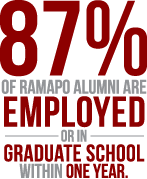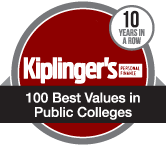College Catalog: 2012-2013
Salameno School of American and International Studies (SSAIS)
Majors/Concentrations:
- American Studies (B.A.)
- History (B.A.)
- International Studies (B.A.)
- Liberal Studies (contract major) (B.A.)
- Literature (B.A.)
- Political Science (B.A.)
- Spanish Language Studies (B.A.)
Concentrations:
- Creative Writing (for literature majors only) (B.A.)
Graduate Program:
Related Links:
Convening Group Websites:
- American Studies Group
- Anthropology Minor Group
- History Major Group
- Liberal Studies Major Group
- Ronald Hayashida
- James Hoch
- Joseph Johnson
- Pinar Kayaalp
- Yvette Kisor
- Tae Yang Kwak
- Iraida López
- Jennefer Mazza
- Carter Jones Meyer
- Sam Ali Mustafa
- Hassan M. Nejad, Dean
- Anthony Padovano
- Clifford Peterson
- Stephen P. Rice
SSAIS aims to create a holistic educational experience that enables students to become literate, intentional and empowered global citizens who are well-versed, not only in specifically recognized fields, but also in interdisciplinary dialogue. Through varied offerings in Anthropology, American Studies, World Languages, History, International Studies, Literature, Political Science, Liberal Studies, and Philosophy the School seeks to enhance students’ understanding and appreciation of the complex cultural, political, and imaginative dimensions of human existence.
At the heart of the School’s curriculum is a commitment to a liberal arts education. This curriculum is designed to help students to: Communicate effectively in writing and speaking; think, read, write, analyze, and make presentations with developed critical skills; understand and appreciate cultural differences; understand trends in and problems facing the global community; understand major philosophical, political, literary and social thought and become familiar with primary sources in these areas; conduct research using a variety of methods and sources; participate in civic and political life; speak another language; understand intercultural and international complexities; use disciplinary and interdisciplinary analysis in problem solving; apply classroom and co-op experiences to new professional, personal and cultural environments; and understand historical change.
SSAIS programs prepare students for graduate and professional studies as well as for a rich diversity of careers and life experiences. Since its creation, thousands of students have graduated from SSAIS. They have pursued successful careers in: Law; graduate school with programs in the humanities and social science; consulting; Social Science research; management positions in business, state, local, and federal governments; leadership in non-governmental organizations; journalism and publishing; community organizing and public interest advocacy; advertising and public relations; teaching in private and public schools (when their majors included teacher education courses); and teaching at colleges and universities.
The School offers several undergraduate programs, all of the courses in one graduate program, two of the required General Education categories, and a host of co-curricular learning events.
1. The Undergraduate Program
The undergraduate curriculum of the School consists of a series of carefully designed and intellectually stimulating academic connections. These include a core curriculum, seven disciplinary and interdisciplinary majors, and over a dozen minors. Students may select a single major, a double major, or combine a major with a minor.
The Core includes a “First Year Seminar” (FYS): AIID 101: “Intro to Liberal Studies,” and a World Language.
All first-year SSAIS majors complete the School’s FYS. Offered each Fall semester, this team-taught seminar introduces students to the various disciplines and interdisciplinary programs in the School, all of which are a part of a liberal arts curriculum. Focusing on a different theme each year in an engaging environment that fosters open communication, the seminar strives to enhance critical thinking, reading, and writing about the complexities of intercultural and international interaction.
SSAIS students must provide proof of proficiency in a world language other than English at the “intermediate low level” or complete up to three 4-credit courses in one of the languages offered in the School’s curriculum subject to availability. Language instruction is regularly offered in Spanish, Italian and French. Other languages may be offered subject to availability of qualified instructors and sufficient enrollment. The language program utilizes a modern computerized language lab.
For more information on the world language requirement and proficiency testing procedures, visit the “Language Requirement and Testing” page on the SSAIS website at, https://www.ramapo.edu/hgs/
Each SSAIS major provides a depth of intellectual and critical study and a mode of inquiry in a particular field of knowledge. SSAIS students are required to choose and complete a major. SSAIS undergraduate majors leading to Bachelor of Arts are: American Studies, History, International Studies, Liberal Studies (a contract major), Literature, Political Science, and Spanish Language Studies
The SSAIS also offers several minors. Minors provide focused learning and scholarship related to the major or unrelated but of special interest to students. Minors are available in most of the above majors, as well as in Anthropology, East Asian Studies, French, Italian, Judaic Studies, Latin American Studies, Philosophy, Creative Writing, Human Rights and Genocide Studies, International Studies, and Public Policy. Regardless of their majors, students are encouraged to participate in a minor program.
2. The Graduate Program; Master of Arts in Liberal Studies (MALS):
The Master of Arts in Liberal Studies is an innovative approach to graduate education whose purpose is as old as the idea of the university itself. As Socrates suggested over two thousand years ago, we need more than specialized learning or mastery of a particular skill to function well in our world. Unlike traditional Masters’ programs, which focus on developing skills in one specific discipline, Graduate Liberal Studies emphasizes the interrelated nature of knowledge and brings the expertise of different disciplines to bear on the issues it examines.
Ramapo’s Master of Arts in Liberal Studies program uses the interdisciplinary, multicultural and international perspectives that Ramapo first developed in its undergraduate programs to explore issues that shaped and continue to influence the modern world. Ramapo’s program is unique in focusing upon the contact between Western and non-Western peoples in the past and the present. It explores how groups who are outside the mainstream have viewed society at different times, and investigates the perceptions of peoples from different cultures. Students study these issues in three core courses, followed by five electives, which build upon themes introduced in the core, culminating in a six-credit thesis.
The program is designed to enhance students’ appreciation of how historical and cultural circumstances condition human experience. Grounded in the tradition of liberal arts and interdisciplinary study, the program nurtures students’ critical thinking and effective communication. Courses taught in the program are from many disciplines, including history, philosophy, sociology, political science, and literature. Students also learn how to improve leadership skills and skills in connecting theory with practical application of knowledge. Research is central to this program. Students will learn how to access, interpret, analyze, and integrate data. They learn how to use traditional and contemporary sources, discern reliable and pertinent information, and present findings with accuracy, clarity, and significance.
The breadth and nature of the program have particular relevance to mature students who want to be able to make better sense of the times in which they live and who function in increasingly multicultural settings. Teachers will find it valuable, as will others whose work places them in contact with co-workers or clients from diverse ethnic backgrounds. The program provides an opportunity to receive a certificate of concentration in a focused area of study.
Small classes, personal attention from an outstanding faculty dedicated to effective and creative teaching and scholarship, and an intellectually challenging and diverse community prepare students for more productive lives and careers.
For information on admissions and graduation requirements, contact MALS office.
3. General Education Courses
The SSAIS also offers all of the courses in READINGS IN THE HUMANITIES and Critical Reading and Writing. Both of these are part of the College’s General Education program and are offered in multiple sections each semester. READINGS IN THE HUMANITIES courses include philosophical and literary works from the ancient period to the present. Critical Reading and Writing courses help students read critically and write with clarity and precision.
4. Co-curricular Events
Each term the School organizes several events designed to supplement and enhance classroom/academic learning and educate and inform the internal and external communities of the College. These events are organized by the School’s Center for Holocaust and Genocide Studies, Colloquium, and Visiting Writers/Poets Series, Film Series, and the International-at-Home program.





